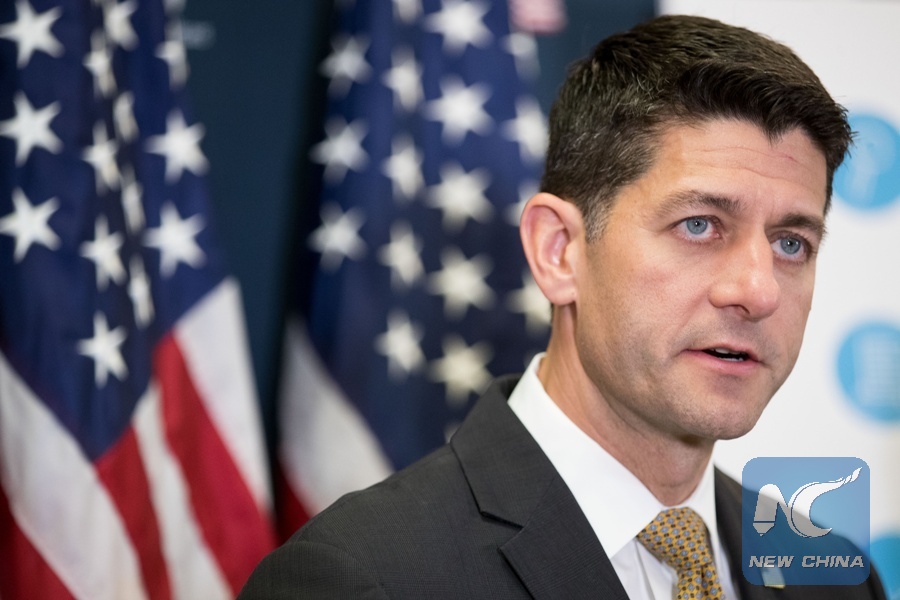
U.S. House Speaker Paul Ryan speaks at a press conference on Capitol Hill in Washington D.C., the United States, on July 25, 2017. The U.S. House of Representatives has overwhelmingly approved a bill that will slap tougher sanctions on Russia, Iran and the Democratic People's Republic of Korea. (Xinhua/Ting Shen)
by Xinhua Writer Liu Chen
WASHINGTON, July 26 (Xinhua) -- U.S. President Donald Trump was facing an impending showdown after lawmakers overwhelmingly approved a bill of sanctions against Russia, Iran and the Democratic People's Republic of Korea.
As the bill, gaining bipartisan support in Congress, was likely to pass the Senate soon, Trump would have to decide whether or not to sign the legislation that would restrain his power of easing Russian sanctions imposed by the Barack Obama administration last year.
According to the bill, Congress will have power to veto any decision made by the president that would "significantly alter" U.S. foreign policy in connection with Russia.
Experts expect Trump to sign the bill, probably with reluctance.
"The White House will not like the bill, as it limits presidential authority," Steven Pifer, senior fellow at Brookings Institution, told Xinhua.
But Trump "may have no choice but to sign," Pifer said.
The bill passed the House of Representatives with a huge majority, suggesting that a presidential veto would be easily overridden, he added.
The U.S. Congress can override a presidential veto by a two-thirds vote with both the House and Senate voting separately.
That "would hand the president a major political defeat," said Pifer.
According to Julian Zelizer, professor of public affairs in Princeton University, Trump would be wise to sign the bill.
The bill was Trump's best opportunity to make a strong statement about Russia, wrote Zelizer in a commentary for CNN.
Pifer also saw the overwhelming bipartisan support on Capital Hill for the bill as a sign of a lack of confidence in Trump when it comes to dealing with Russia sanctions.
"They (lawmakers) worry ... that he (Trump) might ease the sanctions even if Moscow does nothing to justify that," observed Pifer.
Just two days before the House vote, the Trump administration sent a rather mixed message on the issue.
While White House Spokeswoman Sarah Huckabee Sanders said on a TV show on Sunday that Trump was looking upon the bill favorably and the administration "supports where the legislation is now," her boss, the newly appointed White House communication director Anthony Scaramucci, told media that his guess was "he (Trump) is going to make that decision shortly."
After the vote on Tuesday, the White House said that it is reviewing the legislation with no decisions made yet.
Trump "awaits a final legislative package" for his desk, said Sanders.

